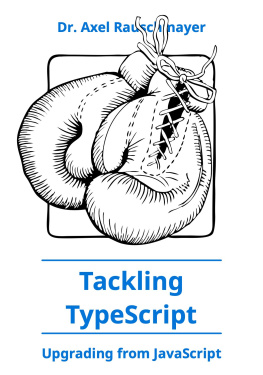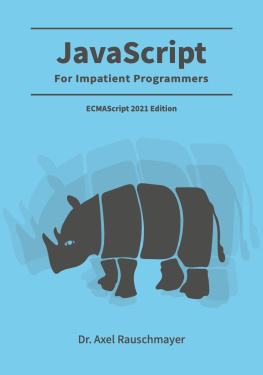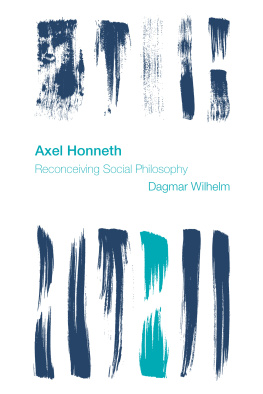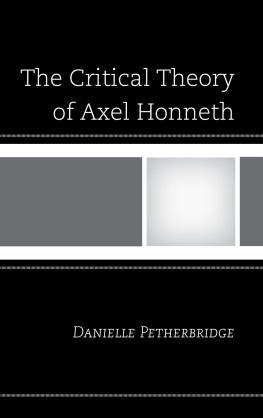Credit: Seth Langner
Levi Vonk is an anthropologist, writer, and doctoral candidate. He lives between the US and Mexico.
Copyright 2022 by Levi Vonk
Cover design by Pete Garceau
Cover photograph of Axel courtesy of the author; border fence iStock/Getty Images
Cover copyright 2022 by Hachette Book Group, Inc.
Hachette Book Group supports the right to free expression and the value of copyright. The purpose of copyright is to encourage writers and artists to produce the creative works that enrich our culture.
The scanning, uploading, and distribution of this book without permission is a theft of the authors intellectual property. If you would like permission to use material from the book (other than for review purposes), please contact permissions@hbgusa.com. Thank you for your support of the authors rights.
Bold Type Books
116 East 16th Street, 8th Floor New York, NY 10003
www.boldtypebooks.org
@BoldTypeBooks
First Edition: April 2022
Published by Bold Type Books, an imprint of Perseus Books, LLC, a subsidiary of Hachette Book Group, Inc. Bold Type Books is a co-publishing venture of the Type Media Center and Perseus Books.
The Hachette Speakers Bureau provides a wide range of authors for speaking events. To find out more, go to www.hachettespeakersbureau.com or call (866) 376-6591.
The publisher is not responsible for websites (or their content) that are not owned by the publisher.
Library of Congress Cataloging-in-Publication Data
Names: Vonk, Levi, author. | Kirschner, Axel, author.
Title: Border hacker : a tale of treachery, trafficking, and two friends on the run / Levi Vonk with Axel Kirschner.
Description: First edition. | New York : Bold Type Books, 2022. | Includes bibliographical references.
Identifiers: LCCN 2021034462 | ISBN 9781645037057 (hardcover) | ISBN 9781645037040 (ebook)
Subjects: LCSH: Kirschner, Axel. | Vonk, Levi. | United StatesEmigration and immigrationSocial aspects. | MexicoEmigration and immigrationSocial aspects. | Human smugglingMexico. | Illegal aliensUnited StatesBiography. | HackersUnited StatesBiography. | AnthropologistsUnited StatesBiography.
Classification: LCC JV6475 .V66 2022 | DDC 304.8/73072dc23
LC record available at https://lccn.loc.gov/2021034462
ISBNs: 9781645037057 (hardcover), 9781645037040 (ebook)
E3-20220225-JV-NF-ORI
For Axels children,
wherever they may be
and for every bitch ass president
who ever deported somebody
THIS STORY IS not about me. It could be said that its about Axel; he is, after all, the titular character. But thats not exactly right either. This story, really, is about the relationship between us and how it is possible for two people who seemingly could not be more different on papera young, southern, white academic and an undocumented, Afro-Latino, New York hustlerto still share something. Its a relationship that, when this book is published, will have spanned more than seven years. To convey it with depthand all the complexities, pitfalls, and power dynamics thereinit was also necessary to question the borders around what is considered acceptable nonfiction. For instance, portions of this book are written from Axels first-person perspective. These passages are based on hundreds of hours of recorded interviews. The best were selected and transcribed by me, and then Axel and I edited them together many times over for strength and clarity. Frequently, passages of several interviews have been combined or rearranged to create the most engaging narrative. In anticipation of any criticism or skepticism that this methodology may inspire, we ask: Why should the author be allowed to rewrite as much as they please, as well as have access to an editor, but not the subject?
In this book, conversations between Axel and me are also often based on recorded interviews or text messages, though they just as frequently come from my memory or his. At every step, we have worked together to ensure that these recollected conversations are as true to the originals as possible, while still conveying a clear and compelling story. Rest assured, Axel read every page of every draft of this book, and any time he flagged something that was inaccurate or that he remembered differently, he swiftly addressed my error. All irregular spellings were recommended by Axel himself to better portray his unique pattern of speech. The intention from the start was to give him space to speak for himself, to tell his story on his own terms, even when he contradicts or criticizes my account of events. It is, no doubt, an imperfect attempt atwhat word to use? Equity? Parity? Solidarity? However, it is an attempt, and one that we hope will push narrative nonfiction in a direction that is not only more compassionate toward its subjects but also more wary of its own narrator-centered point of view.
To accomplish such a daunting task, I have developed what I believe is something of a unique interview style, one that differs somewhat from the journalistic or anthropological standard. I would ask Axel to talk about a subject at lengthperhaps a particular event in his life or his perspective on a certain aspect of migrationand then, throughout the years, ask him to retell that same story to me over and over again. The repetition provided us with much more material, which in turn led to much richer passages in Axels voice. It also has its challenges: Axel and I must grapple with the inconsistencies bound up in all narrativeswhether intentional or otherwiseand sometimes Axels way of thinking about a particular subject changed over time. We have tried to embrace and move deeper into these issues, rather than obscure them.
One of the reasons I believe that this new, experimental way of writing has not been attempted before in mainstream nonfiction (at least that I know of) is because it is much more laborious. For seven years now, Axel and I have stayed in near-daily contact. Our project has taken over both of our lives. Our interviews are incredibly long and nonlinear. What might take an average journalist or social scientist five hours of work (say, one hour of interview, plus three hours of transcription, plus one hour of analysis to pull the best quotes) can easily take us ten times as long. This additional labor is shouldered not only by me, of course, but by Axel as well. For this reason, I have tried to ensure that he is well compensated. Not only have I helped support him financially since we met, but he will be paid like a coauthor for this project and will receive a substantial portion of the profits for every book sold for life. We again see this as a crucial departure from mainstream nonfiction, in which subjects are not only routinely uncompensated, but their unpaid labor is justified through the invocation of some kind of abstract journalistic integrity or objectivity, the measure of which is never defined except through the adamant denial of payment.
Other notes on methodology: Axel and I have sometimes changed or obscured minor facts throughout the book. For instance, Parts I and II are told in chronological order, but Parts III and IV contain a few select passages that have been arranged outside of strict chronology. However, at no point does this slight disjuncture in temporality impact the actual claims made in the book. Additionally, several vulnerable characters names have been changed, as well as their identifying characteristics. In the service of protecting them, I have not marked which names or features have been altered.















